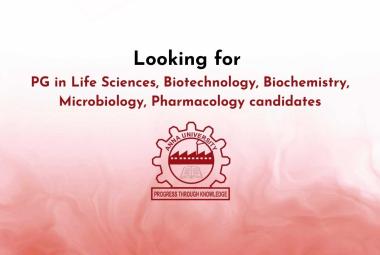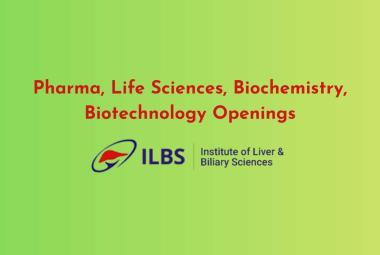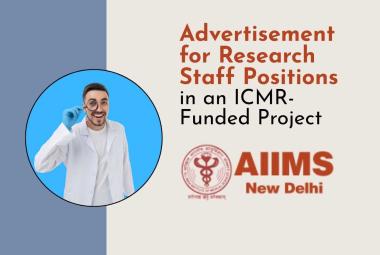The pharmaceutical world is changing fast, and biotech is right at the center of it. While traditional small-molecule drugs are still essential, we’re seeing a real shift toward treatments like monoclonal antibodies, gene therapy, and even personalized medicine. A big part of this change comes from the growing need to tackle diseases that standard drugs just can’t handle well — things like cancer, autoimmune issues, and rare genetic disorders. It’s not that chemical drugs are going away, but biotech is clearly stepping up to fill some serious gaps.
One big reason behind this shift is that biotech treatments can be much more targeted and precise. Unlike traditional chemical drugs that affect the whole body, many biotech therapies are designed to go after specific molecules or cells, which helps cut down on side effects and makes them work better. Take monoclonal antibodies, for example — they can zero in on cancer cells without harming healthy ones, which has been a game changer in cancer treatment. And during the COVID-19 pandemic, we saw how fast mRNA technology could be used to create effective vaccines. It really showed the power and flexibility of biotech in real time.
The rise of biotech has also been boosted by successful partnerships between biotech startups and big pharmaceutical companies. More and more, major pharma firms are investing in or buying up these smaller, innovative players to tap into new technologies and promising research. You can see this trend in the growing number of mergers, licensing deals, and strategic collaborations happening across the industry. For big pharma, it’s a smart way to stay competitive and expand their pipeline with next-generation treatments.
On top of that, breakthroughs in genomics, bioinformatics, and precision medicine are making it easier to create treatments that are personalized for each patient. Thanks to biotechnology, doctors can now tailor therapies based on a person’s genetic profile, which means better results and fewer side effects. And as DNA sequencing gets cheaper and more widely available, biopharma companies are using all that genetic and health data to design smarter, more targeted treatments that really fit the individual.
Regulatory agencies are also stepping up to keep pace with the rapid growth of biotechnology. Organizations like the U.S. FDA and Europe’s EMA have introduced special programs, like fast-track approvals and breakthrough therapy designations, to speed up the review process for biologics and other advanced treatments. These changes are helping encourage innovation, making it easier for companies to bring promising biotech therapies to patients who really need them, and faster than before.
Recent advances of Biotechnological medicines over chemical entities
Biotech medicines have come a long way and are now making a big impact compared to traditional chemical drugs. Unlike small-molecule drugs, which are made through chemical processes, biotech treatments, often called biologics, are much larger and made from living cells. What makes them exciting is their ability to target diseases more precisely, often with better results and fewer side effects. This new wave of therapies is changing the way we treat many complex conditions that older drugs just couldn’t handle as well.
One of the biggest breakthroughs in medicine has been monoclonal antibody therapy. It’s now a key treatment for many cancers, autoimmune diseases, and infections. Unlike traditional chemical drugs that can affect lots of different cells, these antibodies are designed to home in on specific markers found only on diseased cells, which helps protect healthy tissue from damage. For example, trastuzumab is used to treat a certain kind of breast cancer, while adalimumab helps people with rheumatoid arthritis. These targeted therapies have really changed the game for patients.
Gene therapy is another game-changer in biotech. It uses advanced techniques to fix or replace faulty genes that cause diseases. Real examples like Zolgensma, which treats spinal muscular atrophy, and Luxturna for certain inherited eye disorders, show how this approach can potentially cure patients with just one treatment. That’s very different from traditional chemical drugs, which usually manage symptoms and require ongoing use.
mRNA therapies, which many first heard about through COVID-19 vaccines like Pfizer-BioNTech and Moderna, open up a whole new world of possibilities. These treatments work by instructing cells to make specific proteins that either spark the immune system or help fight diseases. Because of their flexible design, they can be developed quickly and scaled up easily. Scientists are now exploring mRNA for cancer vaccines, rare diseases, and even heart conditions.
Then there’s CAR-T cell therapy, which has made big strides especially in blood cancers. This treatment takes a patient’s own immune cells, reprograms them to spot and kill cancer, and has shown amazing results in some cases where other treatments failed. Chemical drugs haven’t been able to match this kind of precision or lasting effect.
Biotech also shines when it comes to complex molecules like fusion proteins — for example, blinatumomab can latch onto two different targets at once, helping immune cells attack cancer more effectively. These kinds of intricate therapies just can’t be made with traditional chemistry, showing how unique and powerful biotechnology really is.
In short, biotechnological medicines are offering novice solutions that go far beyond the reach of traditional chemical drugs. They provide targeted action, potential cures, and the ability to treat previously unmanageable diseases. While challenges such as high cost and manufacturing complexity remain, the future of therapeutics is increasingly being shaped by biotechnology's promise and precision.
Recent biological products
These products illustrate the diversity and depth of recent biological innovations—from gene and cell therapies to monoclonal antibodies and RNA-based drugs—marking a transformative period in modern medicine.
Here are several notable examples of recent biological products that demonstrate the advancements and diversity in biotechnological medicines:
Tofersen (Qalsody)
Approved: 2023 (FDA, USA)
Indication: Amyotrophic Lateral Sclerosis (ALS) associated with SOD1 mutation
Type: Antisense oligonucleotide (ASO)
Significance: It targets and reduces the production of toxic SOD1 protein in patients with a rare genetic form of ALS. This is one of the few precision treatments for neurodegenerative diseases.
Leqembi (Lecanemab)
Approved: 2023 (FDA, USA)
Indication: Alzheimer’s Disease
Type: Monoclonal antibody
Significance: Leqembi targets and removes beta-amyloid plaques in the brain. It represents a new class of disease-modifying therapies for Alzheimer’s, shifting from symptom management to slowing disease progression.
Hemgenix (etranacogenedezaparvovec)
Approved: 2022 (FDA, EMA)
Indication: Hemophilia B
Type: Gene therapy (AAV vector-based)
Significance: First gene therapy approved for Hemophilia B. It delivers a functional copy of the Factor IX gene, allowing the body to produce its own clotting factor and reducing or eliminating the need for regular infusions.
Roctavian (valoctocogeneroxaparvovec)
Approved: 2023 (EMA, FDA)
Indication: Hemophilia A
Type: Gene therapy
Significance: This is the first gene therapy for Hemophilia A, offering a one-time treatment to reduce bleeding episodes and the need for Factor VIII replacement.
Beyfortus (Nirsevimab)
Approved: 2022 (EMA), 2023 (FDA)
Indication: Respiratory Syncytial Virus (RSV) prevention in infants
Type: Long-acting monoclonal antibody
Significance: Unlike traditional vaccines, Beyfortus offers passive immunity by directly providing antibodies to protect against RSV in newborns, with a single dose lasting the whole RSV season.
Abecma (Idecabtagenevicleucel)
Approved : 2021 (FDA), with expanded indications in 2023
Indication : Relapsed/refractory multiple myeloma
Type : CAR-T cell therapy
Significance : Personalized immunotherapy that modifies a patient’s T-cells to target and destroy cancer cells, offering a powerful option for patients who have failed other treatments.
Clinical Research and Biotechnological products
The future looks bright for biological medicines in clinical research. Compared to traditional chemical drugs, biologics are showing much higher success rates in clinical trials. A big part of this comes down to how precisely these therapies work. Treatments like monoclonal antibodies, gene therapies, and RNA-based drugs are designed based on a deep understanding of the disease at the molecular and genetic level. This lets researchers pick the right patients for trials using specific biomarkers, design studies that really focus on the problem, and better predict how well the treatment will work. Because of this, biologics have nearly double the success rate of conventional drugs when moving from early trials to approval.
Many biologics also target rare or orphan diseases, where patient groups are smaller but the medical need is urgent. This often speeds up the regulatory process thanks to special designations like orphan drug status or breakthrough therapy. Plus, new clinical trial methods like adaptive trials, using real-world data, and digital health tools, are making studies more efficient and relevant than ever.
Of course, biologics come with their own challenges, like complex manufacturing and higher costs, as well as the need for long-term safety monitoring, especially for gene and cell therapies. But their precision, lower side effects, and strong support from regulators mean they’re more likely to succeed in development. Because of all this, biologics are quickly becoming the heart of pharma innovation, offering not just commercial promise but also better chances to deliver real benefits to patients.
Market Size and Expansion of Biological Products
The global market for biological products has witnessed exponential growth over the past decade and continues to expand rapidly. As of 2023, the biologics market was valued at approximately USD 430–450 billion and is projected to exceed USD 700 billion by 2030, driven by increasing demand for targeted and personalized therapies. This growth encompasses a wide range of biologics, including monoclonal antibodies, vaccines, biosimilars, gene therapies, and cell-based treatments. The expansion is fueled by rising incidences of chronic diseases, aging populations, and technological innovations in biotechnology. Monoclonal antibodies remain the leading segment, followed closely by vaccines and emerging therapies such as CAR-T cells and mRNA-based drugs. Regions like North America and Europe continue to dominate the market due to advanced healthcare systems and R&D infrastructure, but Asia-Pacific, particularly India and China, is witnessing the fastest growth owing to supportive policies, expanding biotech hubs, and large patient populations.
However, biologics also come with unique clinical research challenges, including high production costs, complex logistics, and potential immunogenicity issues. Gene and cell therapies, while promising, require extensive long-term safety monitoring and robust manufacturing infrastructure. Despite these challenges, the clinical research environment is becoming increasingly favorable, with adaptive trial designs, real-world data integration, and regulatory support playing crucial roles in accelerating development. The overall outlook for biologics remains highly promising, both commercially and clinically, with continued advancements expected to reshape the future of modern medicine.
India in biotechnological research
India is rapidly emerging as a significant player in the field of biotechnological research, with growing capabilities in vaccine development, biosimilars, genetic research, and biopharmaceutical manufacturing. While historically behind global leaders like the US, EU, and China in cutting-edge biotech innovation, India has made notable progress in recent years through public-private partnerships, government initiatives, and an expanding ecosystem of biotech startups and research institutions.
Strength in Biopharmaceutical Production and Biosimilars
India is already known as the "pharmacy of the world" due to its large-scale production of generic medicines. In biotechnology, this strength translates into leadership in biosimilar development and manufacturing:
Indian companies like Biocon, Dr. Reddy’s, and Lupin are developing and exporting biosimilars for insulin, cancer therapies, and monoclonal antibodies.India is one of the top exporters of biosimilars, particularly to regulated markets under WHO and EMA guidelines.This provides India with a strong commercial and manufacturing base, even though innovation in new biologic entities is still evolving.
Pioneering Vaccine Research and Development
India demonstrated its biotech capacity on a global stage during the COVID-19 pandemic:
Covaxin, developed by Bharat Biotech in collaboration with the Indian Council of Medical Research (ICMR), was India’s first indigenous COVID-19 vaccine.Serum Institute of India (SII), the world’s largest vaccine manufacturer, produced millions of doses of the Oxford-AstraZeneca vaccine (Covishield).India is now investing in next-gen vaccine platforms, including mRNA-based vaccines, DNA vaccines (like ZyCoV-D by Zydus Cadila), and nasal vaccines.
Expanding R&D and Academic Collaboration
India’s research ecosystem is growing, with a focus on molecular biology, genomics, and synthetic biology: Institutions like CSIR, DBT, IITs, NIPERs and NCBS are increasingly involved in basic and translational biotech research.Government initiatives like Biotechnology Industry Research Assistance Council (BIRAC) provide funding and incubation for startups in gene therapy, diagnostics, personalized medicine, and agricultural biotech.Programs such as the National Biopharma Mission are aimed at strengthening clinical trial infrastructure and scaling up indigenous biopharmaceutical innovation.
Clinical Trials and Regulatory Progress
India has a large, diverse patient population, making it ideal for clinical research, particularly for biologics and biosimilars. The regulatory environment is gradually aligning with international standards; The Central Drugs Standard Control Organization (CDSCO) has issued clearer guidelines for biosimilar approval, modeled on WHO and EMA standards.India is now conducting more Phase I–III clinical trials for both domestic and multinational biotech products.However, regulatory delays and infrastructure gaps still pose challenges compared to more mature biotech hubs.
Challenges and Opportunities
Challenges :
Limited original biologic R&D (compared to biosimilars)
Inadequate high-end manufacturing and cold-chain logistics for advanced biologics (e.g., gene therapy)
Need for better talent retention, international collaboration, and intellectual property protection
Opportunities :
Leverage cost advantages in clinical trials and manufacturing
Expand into precision medicine, CRISPR, and cell therapies
Scale AI and big data integration in biotech R&D
The shift towards biotechnological medicines marks a transformative era in global healthcare, driven by advances in molecular science, personalized medicine, and targeted therapies. Biologics not only offer improved treatment outcomes for complex and chronic diseases but also exhibit higher clinical trial success rates due to their precision and mechanism-based development. The expanding global market, fueled by growing disease burdens, technological innovation, and supportive regulatory environments, underscores the immense potential of biological products. While challenges such as high costs, complex logistics, and long-term safety monitoring remain, the benefits of biologics in terms of efficacy, safety, and innovation far outweigh the limitations. With continued investment in research, infrastructure, and global collaboration, biotechnological medicines are poised to redefine the future of therapeutics, offering hope for more effective, personalized, and durable healthcare solutions worldwide.
- Rajesh Vagh
PharmaTutor Edu Labs









